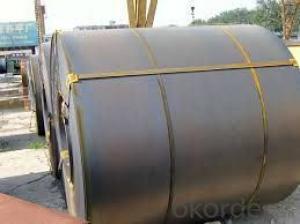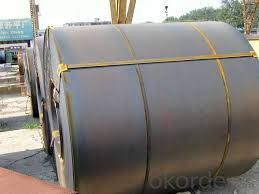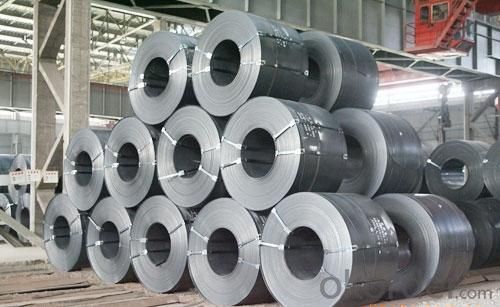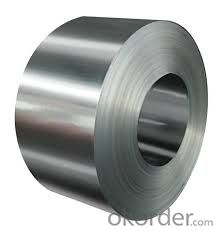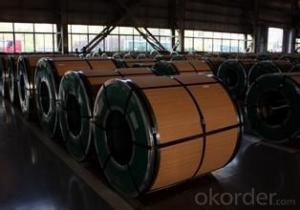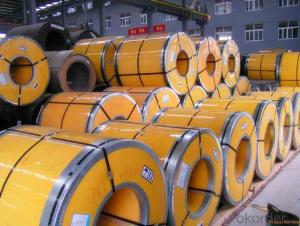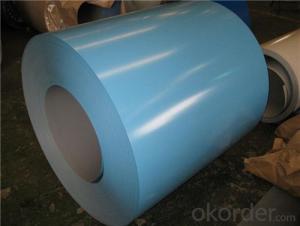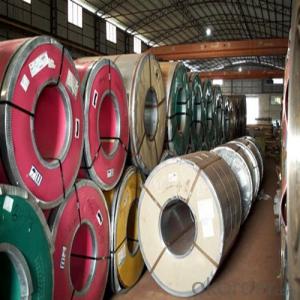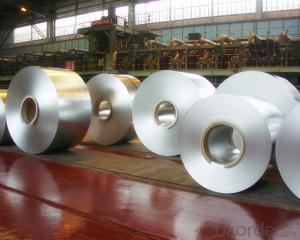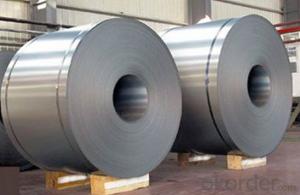Hot Rolled Galvanized Steel Coil /Hot Steel Rolled
- Loading Port:
- Shanghai
- Payment Terms:
- TT OR LC
- Min Order Qty:
- 25 m.t.
- Supply Capability:
- 9000 m.t./month
OKorder Service Pledge
OKorder Financial Service
You Might Also Like
Detailed Product Description
1.Product Information:
Item | Specification |
Commodity Name: | Galvanized Steel Coil (HDGI/GI) |
Thickness(mm): | 0.14mm-3.0mm |
Width(mm): | Above 600mm to 1500mm, negotiable about "below 600mm" |
Zinc Weight: | 30 g/m2 - 275 g/m2 |
Grade: | Mainly Prime, Secondary is also negotiable |
Material: | SGCC, DX51D+Z,DX53D+Z,DX54D+Z,SGH340, etc |
Spangle: | Zero, Minimum, Regular, Big |
Oiled or Not: | As Required |
Anti Fingerprint or Not: | As Required |
Chromed or Not: | As Required |
Passivation or Not: | As Required |
2. Business Scope:
We provide GI, GL, PPGI, PPGL Coils, Corrugated Steel Sheets, feel free to contact for detailed information!
3. Advantage of Our Organization:
We specialize in this field concerning GI, GL, PPGI, PPGL, Corrugated Steel sheet, we know the supplier, the price, the trader, the domestic market and the price trend very well.
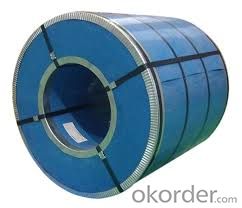
FAQ
1. Do you have QC team?
Yeah, sure, our QC team is very important, they will keep the quality control for our products.for quality inspection every day.
- Q: What are the different types of corrosion protection methods used for steel coils?
- There are several types of corrosion protection methods used for steel coils, including: 1. Coating: Applying a protective layer of paint or coating, such as epoxy or zinc, on the surface of the steel coil to prevent direct contact with moisture and corrosive substances. 2. Galvanization: Immersing the steel coil in a bath of molten zinc to create a protective zinc coating, which acts as a sacrificial layer that corrodes first before the steel. 3. VCI (Volatile Corrosion Inhibitors): Using volatile chemicals that release protective vapors, which form a thin layer on the steel coil's surface, inhibiting corrosion by blocking moisture and oxygen. 4. Passivation: Treating the steel coil with chemicals like nitric acid to remove impurities, creating a passive oxide layer that protects against corrosion. 5. Cathodic Protection: Connecting the steel coil to a sacrificial anode (usually made of zinc or magnesium) or using impressed current to provide a flow of electrons, which prevents corrosion by making the steel coil the cathode in an electrochemical cell. 6. Environmental Control: Maintaining controlled temperature, humidity, and atmospheric conditions during storage and transportation to minimize exposure to corrosive elements. These methods can be used individually or in combination, depending on the specific requirements and environmental conditions.
- Q: What is the role of steel coils in the production of storage shelves?
- Steel coils play a crucial role in the production of storage shelves as they are used as the primary material to create the structural components of the shelves. These coils are flattened, cut, and formed into various shapes and sizes to construct the frames, supports, and shelves themselves. The durability and strength of steel coils ensure that the storage shelves can withstand heavy loads and provide long-lasting storage solutions.
- Q: What are the different types of steel surface treatments for coils?
- There are several types of steel surface treatments for coils, including hot-dip galvanizing, electro-galvanizing, galvannealing, and organic coating. Hot-dip galvanizing involves immersing the steel coil in a bath of molten zinc to create a protective layer. Electro-galvanizing applies a thin layer of zinc to the surface using an electrical current. Galvannealing is a process that combines galvanizing and annealing to create a zinc-iron alloy layer. Organic coating involves applying a protective layer of paint or other organic material to the steel surface.
- Q: I would like to know if steel is basically a very dense crystal, or if it is a different atomic structure
- Steel is made of billions, trillions of very small crystals. This is true of most metals. In order to see the crystal structure of steel, you usually need to cut a sample of it, grind and polish the cut face smooth, then etch the steel with a mixture of nitric acid and alcohol. Without polishing and etching the crystals aren't visible- it just looks like smooth solid metal. Also, in most cases the crystals are small enough that you need a microscope to see them clearly after etching.
- Q: How do steel coils perform in extreme weather conditions?
- Steel coils are highly durable and resistant to extreme weather conditions. They can withstand intense heat, freezing temperatures, heavy rain, and strong winds without losing their structural integrity or performance.
- Q: Im going to buy T-304 Stainless Steel exhaust tips for my truck. Is T-304 Stainless Steel good metal?
- Surprisingly any stainless steel is considered soft or tough metal. A hardness tester will bare this out. It resists work hardening which means you can bend it many more times than cold rolled or hot rolled steel before it will break. Your choice is a good one for your intended purpose.
- Q: I expect that I will be questioned about my knowledge in methoding for steel castings, in a interview. I dont know about it. Can someone explain me in simple language and give me some links, like how I can explain methoding for steel castings.....key points...help please...so that i will pass the interview as if I have experience in methoding....thanks
- It is very difficult to define Methoding of Steel castings by one sentence. Actually it encompasses the total casting process. Normally it would mean a) Pattern design i.e. what type of pattern it would be- wooden, metallic, split or full, loose or fitted on a match plate or any other, how will be the parting line. b) Design of the gating system. c) Design of risering i.e. numbers, size and location of risers. d) Design of molding process i.e. sand system to be used, mold box size. But to do justice to the above mentioned activities, you need to consider other parameters of the casting process such as chemical composition, solidification characteristics, pouring temperature, pouring time, knock out time etc. As I said Methoding of Steel castings means designing of the total casting process from inception to final product.
- Q: I also heard Stainless holds up better againts rust, blue steel needs more care.
- Stainless steel requires less maintenance, but I've got a K-38 Combat Masterpiece from 1974. Back then SW used the real blueing process, and the blue steel looks like its a foot deep. Probably the best looking gun in the accumulation. Still new in the box, never fired. Its my Vietnam tribute gun, same one I carried as a Security Policeman in the Air Force from 1969-1971.
- Q: I moved into a house which has a steel front door.When I touch the door it feels very cold to the touch in the winter.There is a storm door also and the weather stripping looks good.Cold air from the door is entering the lower level.The house is about 20 yrs old.
- Steel doors are insulated,but will feel cold in the winter.Feel all around the door weather stripping area and the seal at the bottom of the door to see if air is getting in.
- Q: What are the common coil edge finishes?
- The common coil edge finishes include mill edge, slit edge, and deburred edge.
Send your message to us
Hot Rolled Galvanized Steel Coil /Hot Steel Rolled
- Loading Port:
- Shanghai
- Payment Terms:
- TT OR LC
- Min Order Qty:
- 25 m.t.
- Supply Capability:
- 9000 m.t./month
OKorder Service Pledge
OKorder Financial Service
Similar products
Hot products
Hot Searches
Related keywords
